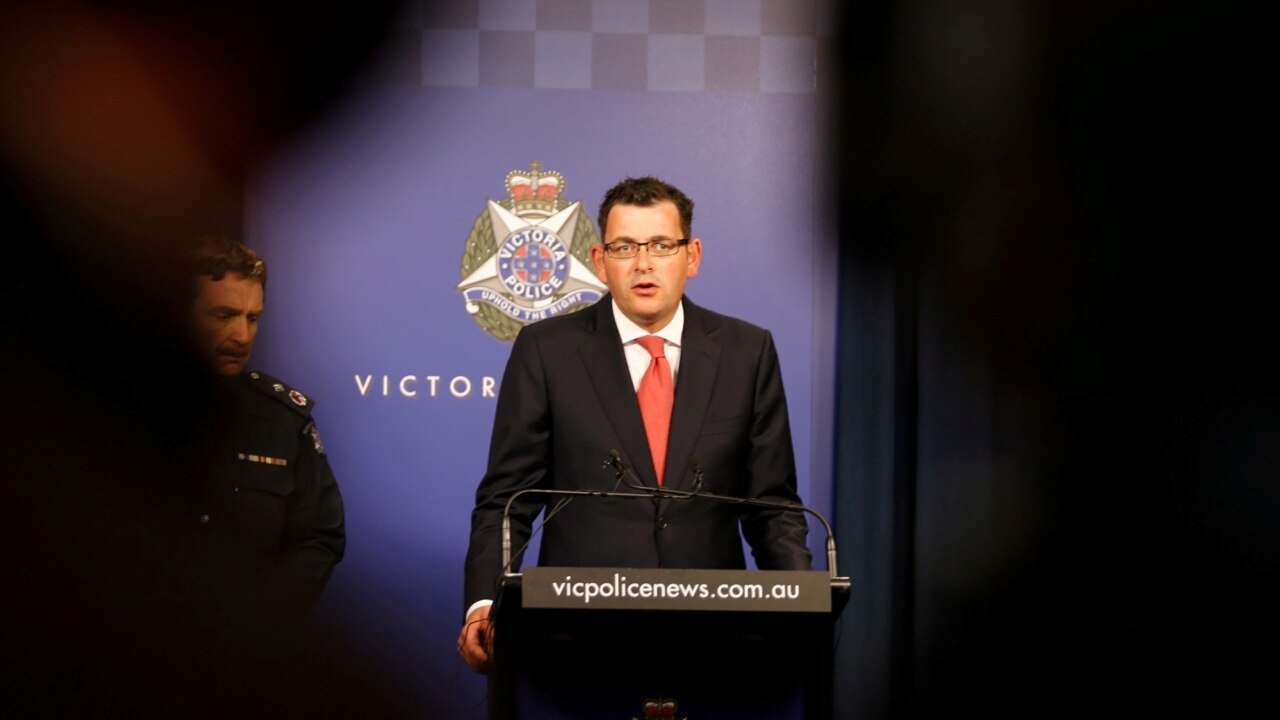Labor rorts for votes exposed: How it happened
THE news that Labor had rorted Victorian taxpayers during the previous state election campaign was broken by the Herald Sun in September, 2015. Almost three years later Victoria Police has announced a criminal investigation into the scheme. Here’s what happened in between.

ON September 2, 2015, the front page of the Herald Sun broke the news that Labor had rorted Victorian taxpayers during the previous state election campaign.
Labor MPs and senior party figures had broken ranks and revealed the elaborate scheme, used in the lead-up to the 2014 election, whereby safe-seat MPs had hired casual electorate officers who were sent to campaign for the ALP in marginal seats.
Whistleblowers revealed that the campaigners were initially hired as full-time ALP organisers, but were later told during a meeting that they would be paid as electorate officers two days a week.
LATEST: MINISTERS UNDER PRESSURE TO STEP ASIDE
MATT JOHNSTON: RORTS PROBE THREATENS TO COMPLICATE POLL
When this funding model — later called the “60/40 split” by Ombudsman Deborah Glass — was explained to the enthusiastic ALP staff, at least one questioned its legality.
While it was brushed aside by the scheme’s mastermind John Lenders at the time, that all-important question is now the focus of a criminal investigation by Victoria Police.
In late 2015, Premier Daniel Andrews denied any wrongdoing and dug in. At first, Labor MPs thought the fuss would blow over. Many genuinely thought a scheme whereby taxpayers picked up some of the tab for political campaigners was no big deal. Others said “everyone does it”.
Mr Andrews said at the time: “There are rules, and they have been followed.”
“I take responsibility for each and every thing that happens under my leadership of the (state) Labor Party and my leadership of the government,” he added for effect.


Later that year, Greens Leader MP Greg Barber put forward a motion in state parliament that shifted focus back on to the saga, and would change its course completely.
Mr Barber called for the Ombudsman to investigate the claims made by whistleblowers — that MP entitlements had been misused.
Ms Glass waited until police had made an initial assessment of the claims. In 2016, police revealed they would not formally investigate.
Back then, they said they had interviewed electorate officers, the department of parliamentary services and “other nominated parties”.

They also examined documentary materials including a review by PricewaterhouseCoopers, the relevant legislation, parliamentary guidance materials and policies.
Senior ministers and MPs thought they had dodged a bullet, but when Ms Glass declared she still wanted to look at how Labor had spent taxpayer money, the government protested.
The Andrews Government took the case to court, three times, arguing the Ombudsman didn’t have the jurisdiction to look into the matter.
At every turn, the court paved the way for Ms Glass to open an investigation.
When she eventually tabled her report in March this year, Ms Glass declared the Labor’s campaign funding scheme was “wrong” and “an artifice”.
About $388,000 was misused, she said, although it was hard to put a precise figure on the money rorted because Lower House MPs didn’t co-operate with the inquiry.
The Premier held a press conference and, without admitting any wrongdoing, said he was sorry that the whole thing had happened and the ALP would repay the money in a sign of good faith.
MORE: LABOR MPS WORRIED WHETHER CAMPAIGN ARMY WAS ABOVE BOARD
RORTS-FOR-VOTES PROBE AS SCANDAL SPLITS LABOR

Again, Labor thought that was the end of the matter, even though a Legislative Council Privileges Committee inquiry was formed to grill MPs.
But after re-examining evidence and the Glass inquiry, Victoria Police on Friday dropped the bombshell on Labor. The force had re-examined the matter and this time, a criminal investigation would be opened.
Labor MPs were gobsmacked. So were Liberal MPs, who genuinely thought the police would find “nothing to see here” for a second time.
But the Opposition soon recovered and called for ministers named in the Ombudsman’s report to stand aside during the investigation.
Labor dug in again, with MP Harriet Shing telling state parliament that MPs had always “acted in good faith”.
She said the police statement announcing an investigation had “no reference to MPs, there is no reference to ministers”.
Labor MPs and ministers say they don't know who or what is the subject of the investigation. That’s what has got some worried. Others are white-hot angry.
With four months to go before the state election, they know the timing couldn’t be much worse.


